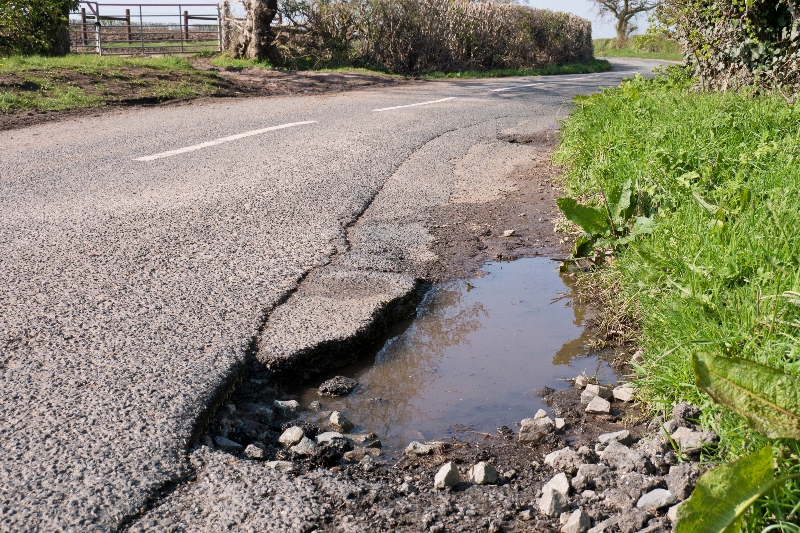The RAC has dealt with the highest number of pothole-related breakdowns seen in any third quarter since its records began in 2006.


This was up 46% on the 4,085 call-outs during the same period last year and was 580 more than the previous third-quarter high of 5,398 in 2013.
The first quarter of 2021 still holds the record for the RAC’s highest number of pothole call-outs in a quarter, with 14,827 drivers breaking down for that reason.
Its head of policy, Simon Williams, said the promised £8.3bn for local highways authorities should give them the certainty of funding they need to be able to plan longer-term road maintenance work, adding: ‘We very much look forward to finding out exactly how the money will be allocated.'
He said: ‘It’s vital that more councils start to make greater use of surface treatments which can cost effectively extend the lives of these roads.
‘Our analysis of government data shows that many are no longer surfacing dressing their roads, which partly explains why so many are now peppered with potholes.
'Our message to government is to get councils using surface dressing again as this helps seal roads, which prevents water getting in, cracking the asphalt when the temperature drops to freezing.
‘Roads in better condition need to be kept that way through a combination of carrying out the most permanent pothole repairs possible, with those requiring more attention being surface dressed, while roads that are no longer fit for purpose must be fully resurfaced.
‘If this approach is adopted, we believe we will eventually see lasting benefits and a welcome end to the pothole plague drivers have had to endure for far too many years.’
The RAC suggested more guidance was needed to help councils take up more effective treatments.
Cllr Darren Rodwell, transport spokesperson for the Local Government Association, said: ‘Councils much prefer to invest in more cost-effective and resilient resurfacing than retrospectively dealing with potholes.
‘The recently announced £8.3bn additional funding for roads maintenance should help to bring more of our local road network up to scratch, and help deal with the £14bn backlog of repairs. We await to see more details of the funding plan.’